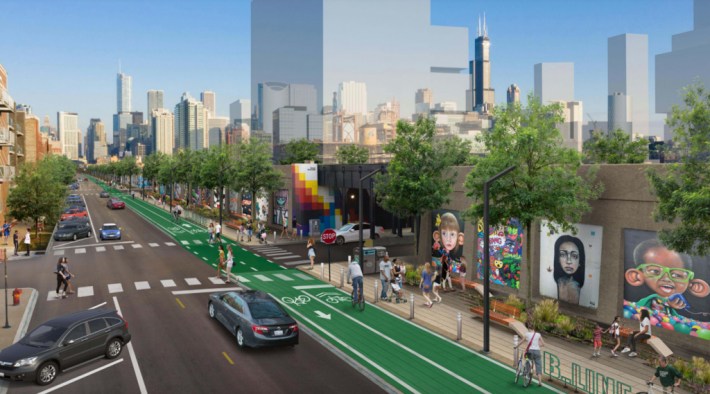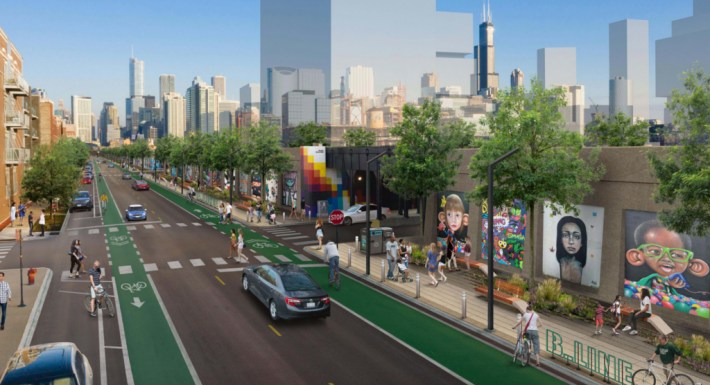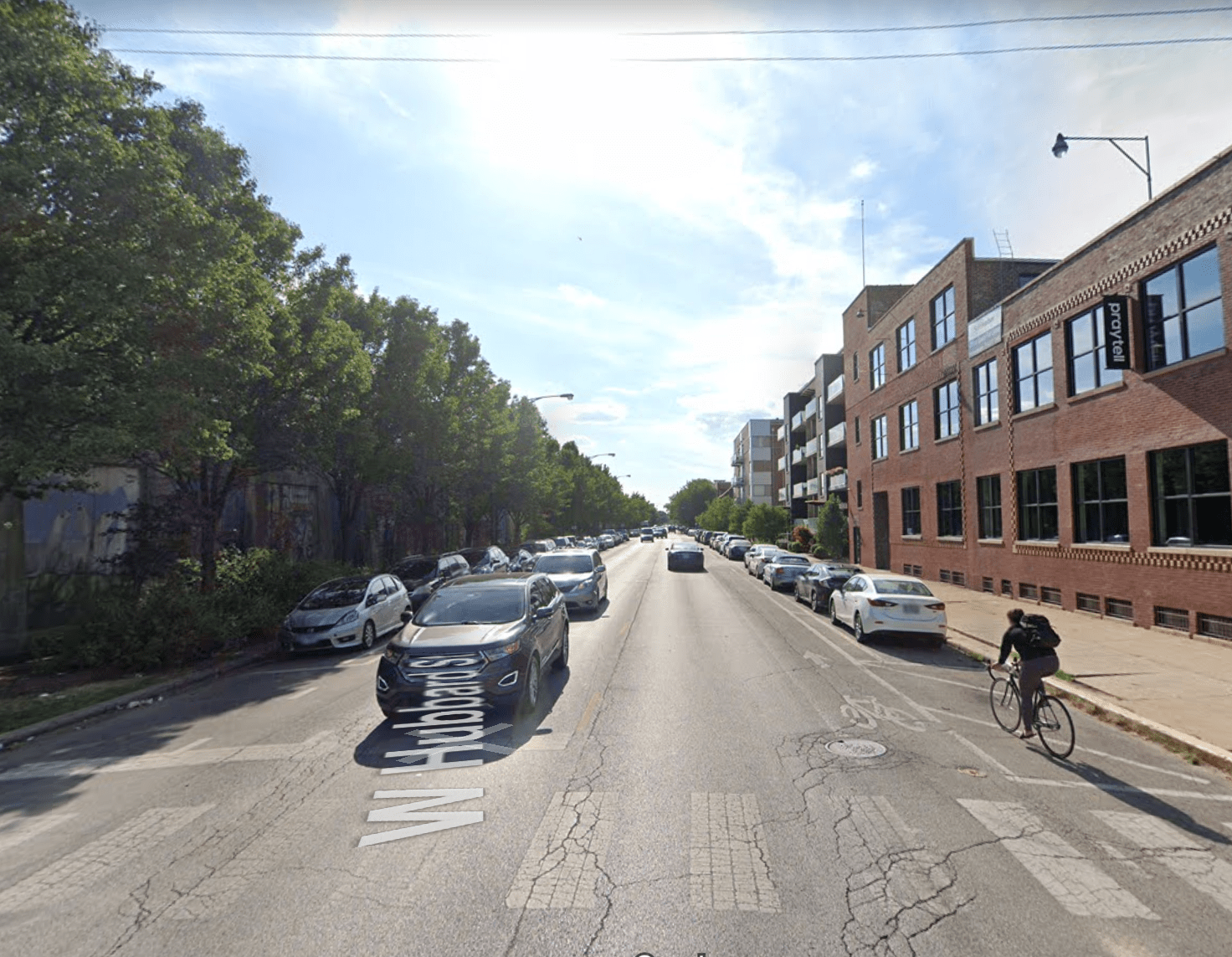Despite the continued threat of climate change and the fact that the COVID-19 pandemic has caused a reevaluation of the role of the car in urban mobility, the city of Chicago continues to defer to drivers about whether or not bike infrastructure should be installed.
The Fulton Market Innovation District Update plan (currently available as a draft) includes a proposal for upgraded bike lanes on Hubbard Street in the West Loop. One possibility would be a two-way protected bikeway on the south side of Hubbard, next to a railroad embankment, which may involve stripping car parking from one side of the street.

According to a report from Block Club's Jay Koziarz, during an online meeting on the plan, some residents were supportive of the proposed changes to Hubbard, but others were concerned about the possibility of a parking crunch. Local alderman Walter Burnett responded that the bikeways aren't "a done deal," adding, "When I first saw this, I said the bike lanes are going to be a challenge and a concern. So we need to see how it relates to what’s happening in the community and how [the residents] feel about it.”
City staffer Cynthia Roubik said the Hubbard renderings were merely conceptual, Block Club reported. “We would have to do a lot more analysis and study — and find the funding, honestly — before we could really dig into the options there,” Roubik said.
Fellow city planner Karen Rogulja noted that the West Loop has good transit access, including Green and Pink line stations, and a new 500-car parking garage was recently approved in the West Loop at Randolph and Ada streets, Koziarz reported. “We are aware that parking is limited in the neighborhood. City street parking is important to maintain for businesses and residents,” Rogulja said. “We work very hard to balance bike access, pedestrian safety, rail crossing requirements, parking, and driving lanes. We will have to consider all users and all demands on the right-of-way.”
In reality asking drivers whether or not the city should create more car-free space for sustainable transportation is akin to asking smokers their opinions on indoor smoking bans. Chicago saw an increase in the number of people killed while walking and biking in 2020 and yet we are debating whether or not storage of empty vehicles should come before providing safe biking infrastructure.
Sadly, some of the potential layouts for the Hubbard bike lanes lack physical protection and will continue the status quo in which people biking have to ride defensively to make sure they're not struck by through traffic, drivers moving in and out of parking spots, or inattentive motorists opening a door without checking for bikes.

I've biked in the Fulton Market area before and it's often a sea of ride-hail drivers dropping off and picking up passengers despite it being a transit-rich area. I often want to zip in and out of the area as quickly as possible in order to avoid being struck. Protected biking infrastructure would be a welcome change in this area, and not just on Hubbard Street.
Mayor Lightfoot has made several statements that she supports the city increasing its efforts to mitigate climate change. As Streetsblog Chicago has recommended several times, ending aldermanic prerogative is a step in the right direction for equity and climate resilience. Currently aldermen are able to veto projects that can move us in the right direction for increasing the number of people using active transportation and projects that can reverse poor land-use patterns that lead to an increase in driving, among other things.
The decision on whether or not to create bike infrastructure should not be left in the hands of drivers or aldermen who are easily influenced by the loud voices of drivers. Once again I'm asking that biking infrastructure not be pursued in a timid “Can we build this?” manner. Rather, our point of view should be that we need to build a safe, all-ages-and-abilities cycling network. City officials should as residents for input on exactly what sort of design they’d like to see, but the assumption should be that protected bike infrastructure is a given.
I'd also add that the current protocol where bikeways are approved by aldermen on a ward-by-ward basis is largely to blame for the disjointed and inequitable cycling landscape we currently have in Chicago. Districts where residents who ride bikes are actively lobbying their City Council reps for more bike lanes are more likely to get them, whereas parts of the South and West sides that don't have such a vocal bike advocacy community are often overlooked.
I’ll leave you with these thoughts about the Hubbard situation from local transportation advocate Michael Podgers.
I want to add we often defer to driver’s needs/opinions bc driving is considered a mobility default although that constituency is given more voice. Its also default by design. We can’t change that and diversify the mobility ecosystem if we don’t change our infra @AldermanBurnett
— ProvocCitiesBlog (@ProvocCities) January 29, 2021





